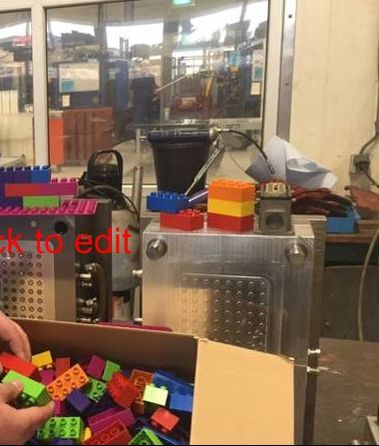 injection molded toys
injection molded toys
The toy industry wasnot allways at the forefront of sustainability. low margins are normal in this industry, The Chinese Legoconcurrent BanBao and another start up company luco toys wants to change that. The company will be the first to put sustainable building blocks on the market this summer. That is much earlier than market leader Lego, which does not do so until 2030. And those stones do not come from China, but from the Dutch Ter Aar.
The food sector and the packaging industry already invent in the area of sustainability, however in the toy industry this can be improved. Market leader Lego invest huge sums to change their engineer and marketeers .
Children , and most of the parents have no idea, but Lego and Duplo cubes are basically made of oil. In 2030, the Danish company will replace all oil-made cubes with sustainable blocks in one go. That costs more than 130 million euros.
The Chinese competitor BanBao has a idifferent strategy . Up to now, it has been producing its building plastics toy blocks in China, but that is now changing. Over the last three years, the European subsidiary, based in Venlo, has developed sustainable blocks, together with the Biopromotions located in Ter Aar. 2.5 million euro was made to BanBao, ( a fraction of Lego's investment.)
Sugar cane waste was used as the first basic material to injection mold the blocks and sold on the market in July. 2011
Step by step they have to replace the traditional ABS blocks.
"We just want to be the first," says Steven van Bommel, CEO of BanBao Europe. He took the initiative within the company. "We are more agile and can therefore work very purposefully." Van Bommel expects to produce 10 million sustainable blocks this year, out of a total of 2.5 billion blocks the company makes each year. "If we can make them now, why should we wait any longer to market them?"
He expects other toy manufacturers not to wait long. "We show that every producer has the opportunity to make a bio-based product at a relatively good price, which I think will really change the market."
There is a lot of interest in the sustainable blocks, he notes. "Even in countries like Turkey and in Eastern Europe, buyers say: this is what we have been waiting for for a long time." Also from the US - with clients such as Walmart and Toys "R" Us an important market for BanBao - there is a lot of interest. "We are fully booked with appointments at the important New York Toy Fair next week."
According to Van Bommel, the blocks are just as good as the oil-made toys. "They last just as long and the color retention is just as good." It is striking that they are made here and not in China, despite the fact that the costs are lower.
"We do not look at the costs, but at how we can make production sustainable in an efficient way, and we want the Netherlands to benefit from this", explains Van Bommel.
Bommel.
BanBao is a Chinese company that makes toy building blocks. Over half of the turnover of 56 million euros is accounted for by the Chinese market. The European and American markets then follow. They are operated from the Dutch Venlo.
BanBao sells in the Netherlands via the webshops of bol.com, Blokker and Intertoys and the physical stores of Action, Lidl and Aldi. In the US, the products are available via Walmart and Toys "R" Us. In China the production of 2.5 billion cubes per year is still taking place. There the company employs 1,000 staff. There are 17 employees in Venlo.
The Danish competitor and global market leader Lego sells more than 70 billion cubes per year. Turnover amounted to 1.9 billion euros in 2015.
The new product line was developed in collaboration with Biopromotions, which specializes in products made from biodegradable and bio-based plastics. Director Robert de Waal expects a lot from the cooperation. "We are going to equip a whole new hall with new machines and hire additional staff."
Christiaan Bolck, researcher on sustainable materials at Wageningen University, finds BanBao's initiative "certainly a step forward". According to him, the toy industry is not very sustainable so far.
"The packaging sector is very busy with sustainability, car and textile manufacturers too, but the big boys in the toy industry have not yet come in. When I walk into a toy store, I certainly do not see shelves full of bio-basedplastic."
